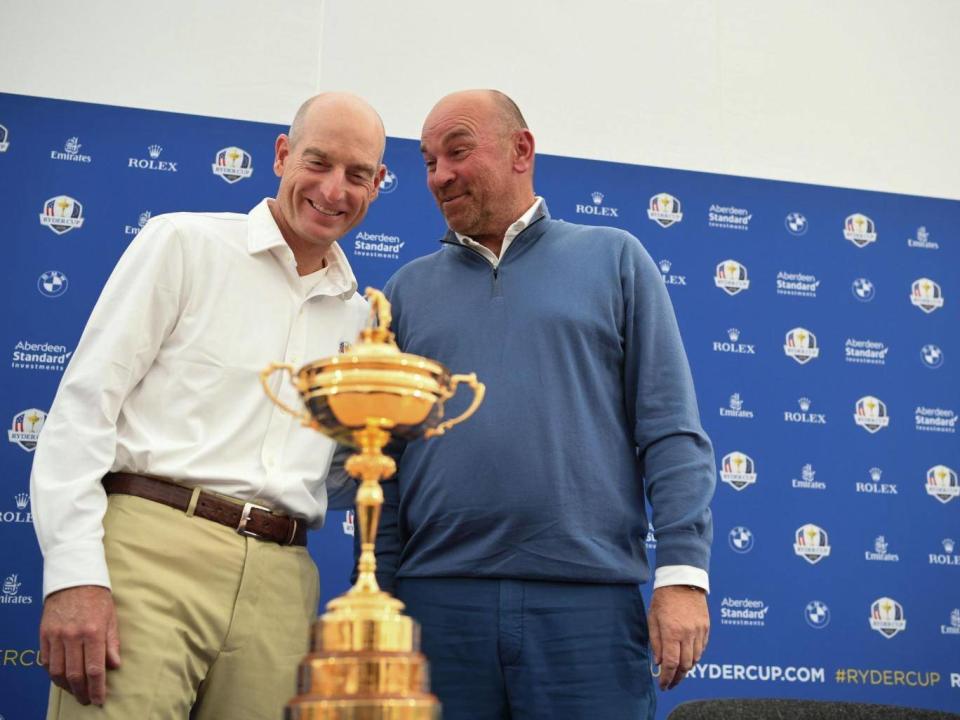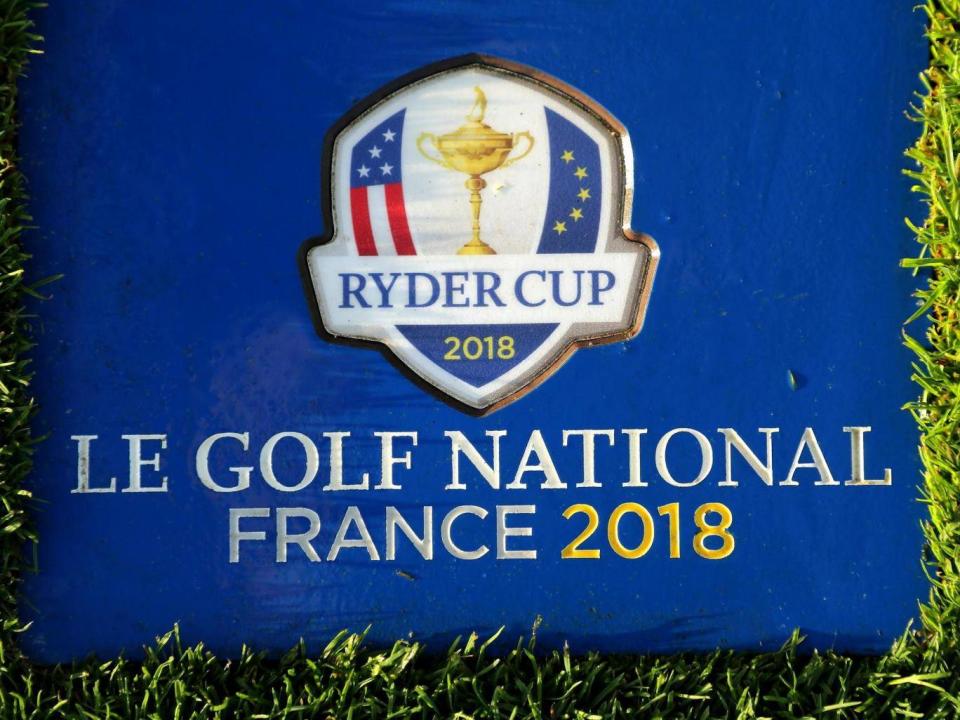Ryder Cup 2018: Every question about the tournament answered that fair-weather fans are too afraid to ask
One of the year's biggest sporting events starts on Friday when Europe take on the United States to try and reclaim the Ryder Cup.
All eyes will be on Le Golf National in Paris as 24 of the world's best golfers battle it out over three days for country and continent but what is it that makes the Ryder Cup golf's biggest event?
The Ryder Cup can be a little confusing for newcomers to the sport with its match play format, but we have you covered.
Here, we will try to answer all of your Ryder Cup questions, to bring you up to speed ahead of the big event.
The Ryder Cup, that's just like the Open or the Masters, then?
No it is not. While the vast majority of golf events are individual affairs with a player playing for themselves at stroke play across four days, here they are part of a team playing match play. Both the Americans and the Europeans have 12 players and the teams will battle it out for 28 points over three days at the biennial showpiece. The first team to 14.5 points wins the Ryder Cup, while the United States will retain the trophy as defending champions should the contest end 14-14.
Match play?
In match play, the aim of the game is to take fewer shots than your opponent on any given hole to win that hole. If players or pairs record the same score on a hole, it is halved. The pair or player who wins the most holes in an 18-hole contest wins a point for their team, with the match ending if the leading player or pair cannot be caught. If the contest is level after 18 holes, each team gets half a point.

Players or pairs? So there's more than one type of match?
Yes. Of the 28 points available over the weekend, eight will be in foursomes and eight will be in fourballs, with a pair from each team playing against each other for the point. In the foursomes, each pair plays with one ball and the players take it in turns to take shots, with the pair taking the least shots on a hole winning it. In the fourballs, each player plays their own ball and the lowest score on the hole wins it for their pair. There are then 12 singles matches which are one-on-one contests with each player playing their own ball.
And all this is happening at once?
No. The first two days consist of the fourball and foursomes matches, with four sets of fourballs played each morning and four sets of foursomes played on both afternoons. The 12 singles matches will then be played on Sunday afternoon.

So why is a country playing against a continent? That seems odd
It wasn't always that way. The event started in 1927 as the United States against Great Britain, with teams made up of players from England, Scotland, Wales and the Channel Islands winning two of the first four Ryder Cups. It all went downhill from there for the Brits, who lost 16 of the next 18 contests after 1933 despite Northern Ireland coming on board in 1947 and players from the Republic joining the fray in 1953. With a Spaniard by the name of Seve Ballesteros coming to prominence in the late 70s, in 1979 continental European players were allowed to join the team to try and even the playing field.
Did it work?
Eventually. Europe lost their first three contests but in 1985 they finally broke the run and the team from this side of the Atlantic lifted the trophy for just the second time since the war, claiming their first win on US soil two years later. Europe retained the trophy in 1989 but lost in 1991 and 1993 - the last time they lost at home - and Europe have won eight of the last 11 Ryder Cups.

They must be favourites then?
Not really. While Europe have the best record recently, the American team can boast world number one Dustin Johnson, Masters champion Patrick Reed, US Open and US PGA champion Brooks Koepka and a resurgent Tiger Woods who won last weekend. Open champion Francesco Molinari, World Number Two Justin Rose, four-time major winner Rory McIlroy and reigning Race to Dubai champion Tommy Fleetwood lead a good European team but a home win would be considered a minor upset.
Does home advantage count for nothing really, then?
The home team gets to set up the course to their liking but the fans may be the biggest factor in their advantage. The Ryder Cup attracts huge sell-out crowds with imposing grandstands and vociferous support, with the American crowd sometimes being accused of crossing the line in a sport renowned for its etiquette. Reed, McIlroy and the likes of Ian Poulter, Tyrrell Hatton and Bubba Watson are sure to get the crowd going one way or another and as a watching fan, there is truly nothing like the Ryder Cup.

 Yahoo News
Yahoo News 